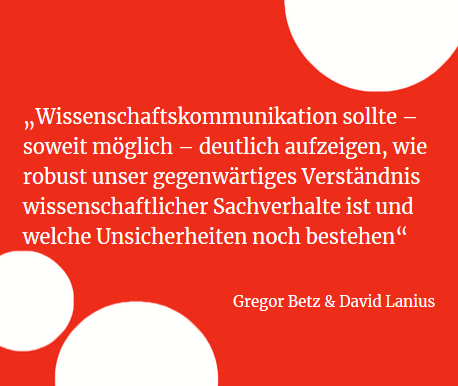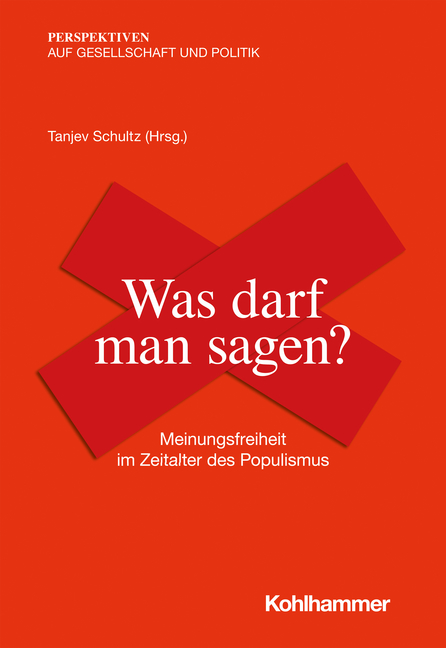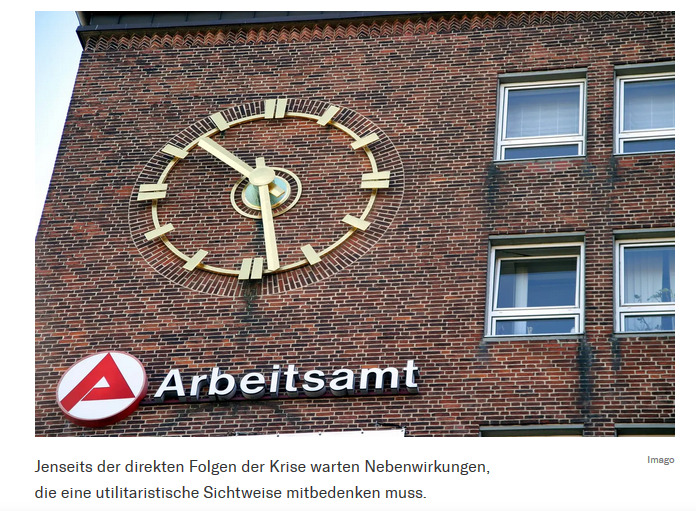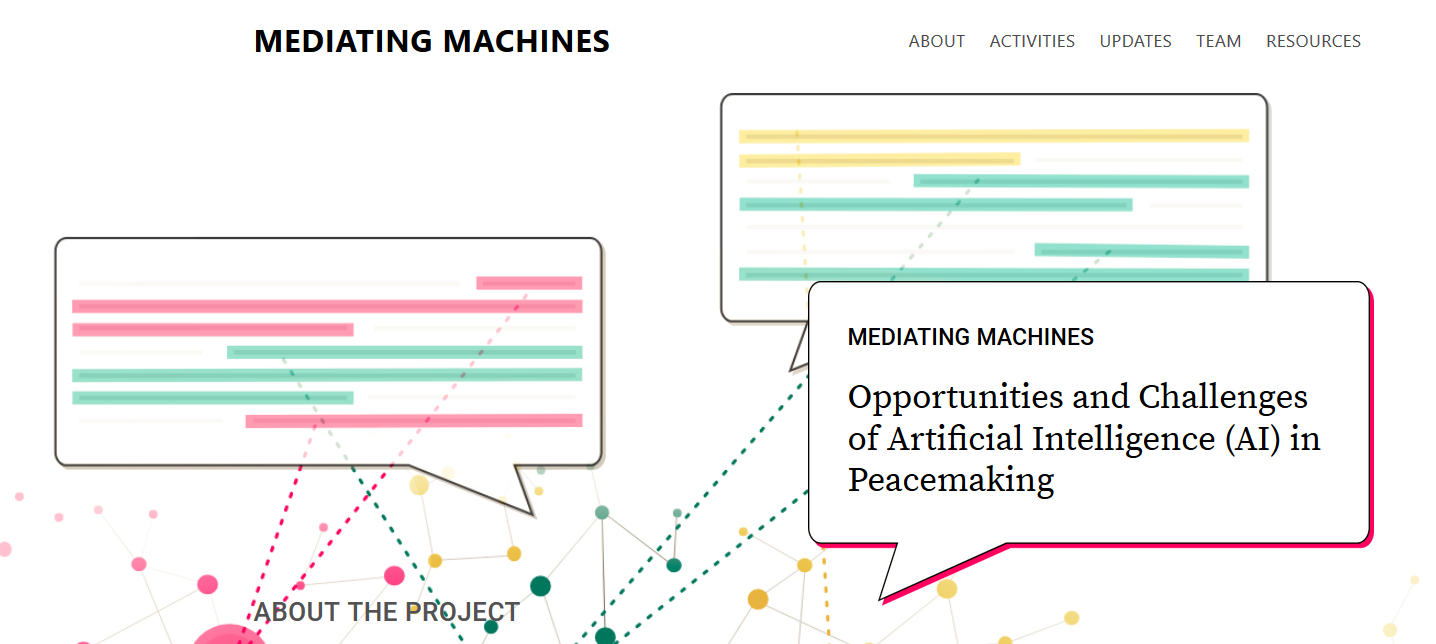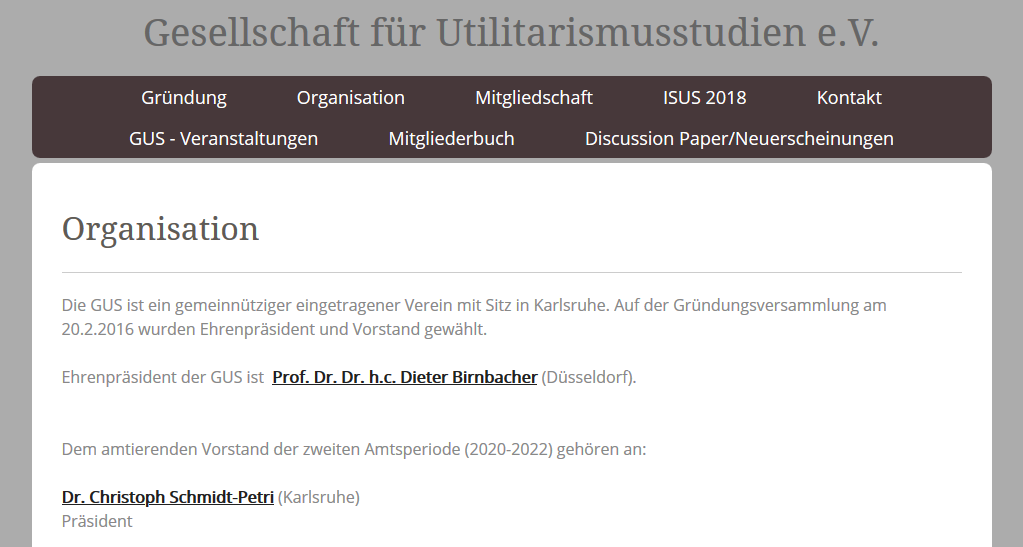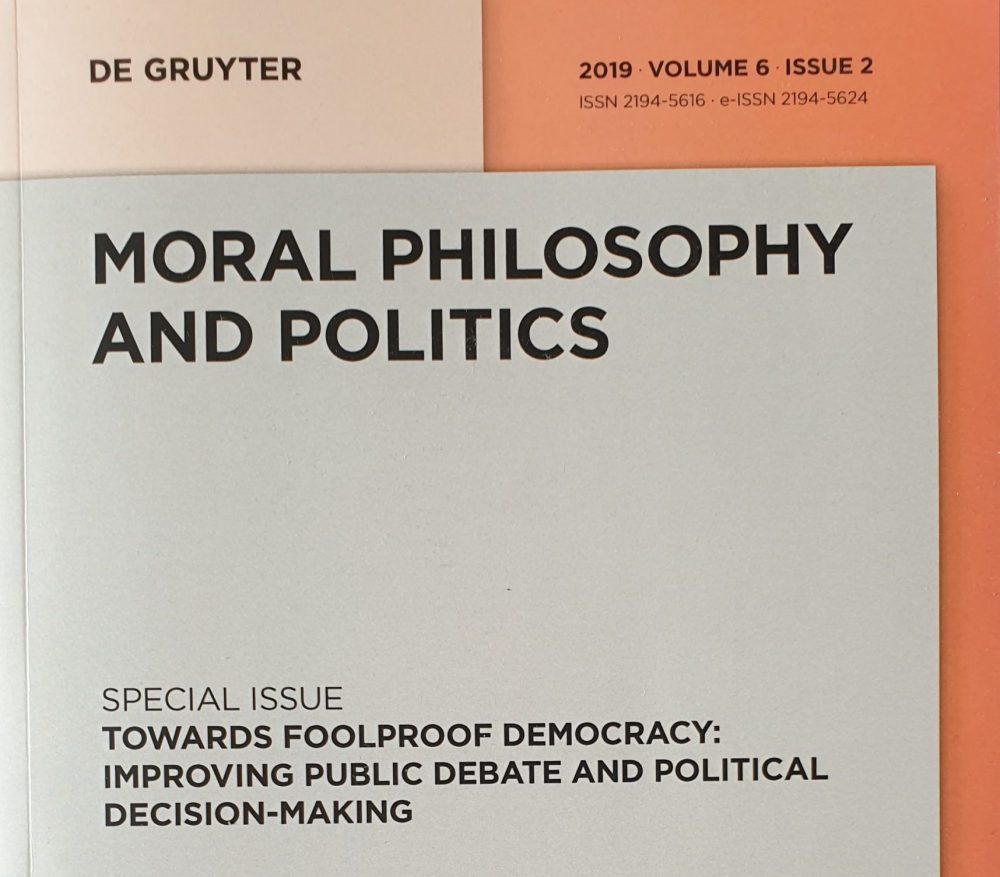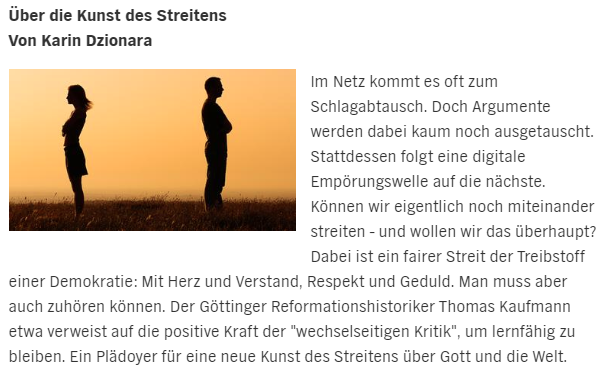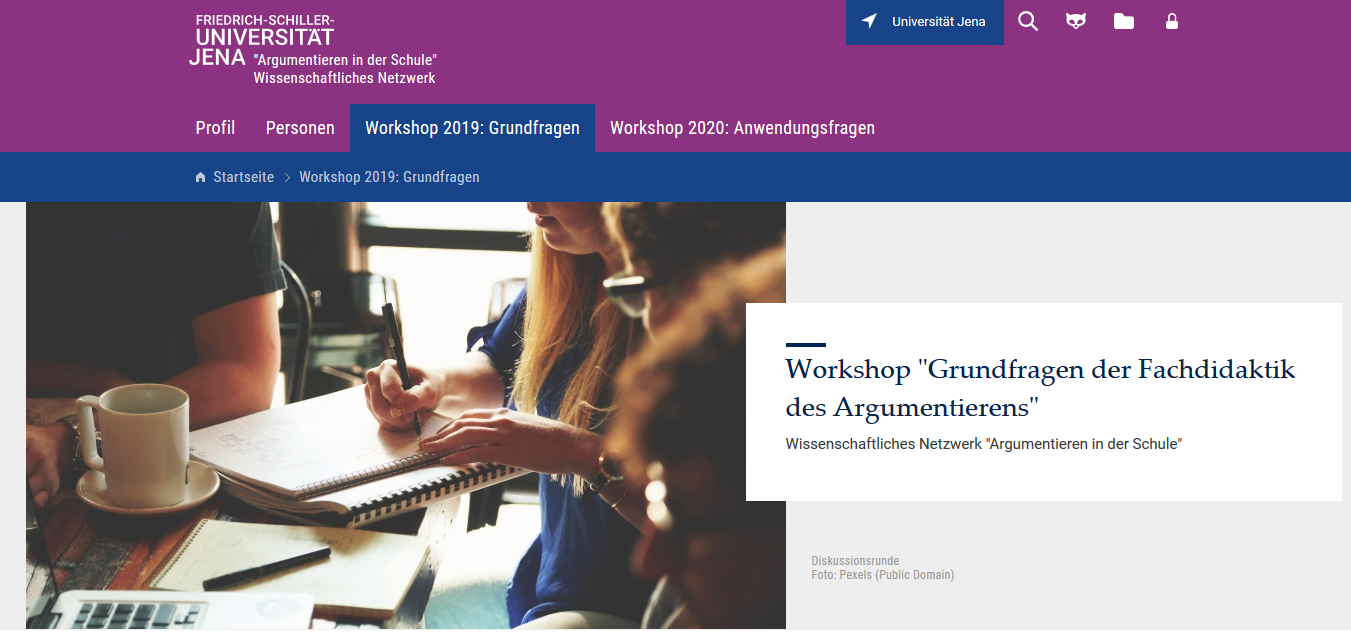Wissenschaftliche Erkenntnis ist eine Frage des Mehr-oder-weniger und nicht des Ja-oder-nein
Wie viel Wissenschaftstheorie braucht die Wissenschaftskommunikation? Gregor Betz und David Lanius vom DebateLab des Karlsruher Instituts für Technologie (KIT) erläutern in einem Gastbeitrag von wissenschaftskommunikation.de, warum man sich in der Kommunikation genauer mit dem Begriff „Fakten“ und der Sicherheit von Erkenntnissen befassen sollte.
Lasst uns streiten!
Auf dem Debattenportal sagwas.net habe ich am 8. Juli 2020 in einem Interview über die Rolle von Evidenz, Quellen und der Erkenntnistheorie im Allgemeinen gesprochen, wenn wir Streitgespräche mit Menschen führen, die Verschwörungsmythen für wahr halten. Das Interview gibt es hier und hier.
Meinungsfreiheit und die kommunikative Strategie der Rechtspopulisten
In einem Beitrag zu dem Band “Was darf man sagen? Meinungsfreiheit in Zeiten des Populismus” von Tanjev Schultz (erschienen im Kohlhammer Verlag) versuche ich die Frage zu beantworten, was Menschen in der öffentlichen Debatte meinen, wenn sie behaupten, dass Meinungen nicht frei geäußert werden können – und darauf aufbauend zu klären, welche Rolle die Vorwürfe von „Zensur“, „Meinungsdiktatur“ und „Gesinnungsterror“ in der Kommunikation der AfD spielen.
Was heißt es überhaupt, wenn behauptet wird, dass die Meinungsfreiheit bedroht ist? Was bedeutet es, wenn der Vorwurf gemacht wird, dass Zensur wieder stattfindet? Gibt es eine kommunikative Strategie der AfD, in der solche Vorwürfe eine wesentliche Rolle spielen? Diese Fragen erfordern Antworten – nicht, weil Vertreterinnen und Vertreter der AfD diese Vorwürfe äußern, sondern weil sich die öffentliche Meinung offenbar nicht im Klaren darüber ist, wie sie lauten.
All dies und mehr kann man ab heute in dem Band “Was darf man sagen? Meinungsfreiheit in Zeiten des Populismus” nachlesen..
Die Corona-Krise und ihre Folgen
Mit dem Präsidenten der Gesellschaft für Utilitarismus-Studien, Christoph Schmidt-Petri, habe ich einen Artikel über die Corona-Krise und ihre Folgen in der Neuen Zürcher Zeitung veröffentlicht:
Und was ist mit den Folgen der Krise? Die gängige Ethik bedenkt sie zu wenig
Es wäre falsch, nur die gerade jetzt bedrohten Menschenleben zu zählen. In der Corona-Krise müssen dringend die Konsequenzen der Massnahmen abgeschätzt werden. Dazu braucht es die utilitaristische Moraltheorie.
Mediating Machines
The research project “Mediating Machines” on the role of Artificial Intelligence in mediation has now officially started.
It is conducted by researchers at the Centre on Conflict, Development and Peacebuilding (CCDP), Graduate Institute of International Development Studies, Geneva (IHEID), the Karlsruhe Institute of Technology (KIT), the Fraunhofer Institute of Optronics, System Technologies and Image Exploitation (IOSB), Universität Düsseldorf and SwissPeace and funded by the Artificial Intelligence and the Society of the Future Initiative of the Volkswagen Foundation.
Werte offenlegen
In der neuen Ausgabe des enorm-Magazins spricht sich David Lanius dafür aus, unsere Werte in gesellschaftlichen Debatten offenzulegen, um Scheindebatten zu vermeiden.
Neuer Vorstand für die Gesellschaft für Utilitarismus-Studien
Die Gesellschaft für Utilitarismusstudien e.V. (GUS) ist eine Vereinigung von am Utilitarismus interessierten Wissenschaftlerinnen und Wissenschaftlern. Die Mitgliederversammlung hat Dr. Christoph Schmidt-Petri (Karlsruhe) zu ihrem neuen Präsidenten gewählt.
Desweiteren sind im Vorstand nun Prof. Dr. Bernward Gesang (Mannheim), Jonas Harney (Saarbrücken), Prof. Dr. Peter Niesen (Hamburg), Prof. Dr. Ulla Wessels (Saarbrücken) sowie ich selbst.
Towards Foolproof Democracy: Advancing Public Debate and Political Decision-Making
The events of the year 2016 have led many critical observers to doubt the stability and longevity of democracy. Ideally, democracy effectuates the rule of reason. Debates in elected assemblies and in society as a whole should serve the process of finding best reasons for political decisions. However, the mechanisms that currently produce such decisions are vulnerable to misuse. Arguably, they need to be redesigned in an attempt to make them “foolproof” – i.e., to design them in a way to make misuse inherently impossible or to minimize its negative consequences.
Empirical evidence suggests that political agents may generally lack the required competence for deliberation and debate. Even very intelligent people systematically tend to focus on information that confirms what they already believe and dismiss information that contradicts it. Instead of seeking rational debate, people often cling to forms of modern tribalism. In addition, modern communication networks are swiftly replacing traditional print and broadcast news media. This shift presents deliberative democracy with opportunities but also risks, as these communication networks neither encourage a balanced exchange of information nor systematically check its quality.
A special issue on Foolproof Democracy
In view of these developments, the question of the desired relation between democracy, deliberation, and truth looms large. Moral Philosophy and Politics invites contributions that seek to articulate this relation from the viewpoint of philosophy and political science. Suitable contributions may address such questions as:
- How, if at all, can we improve public opinion formation?
- Is deliberation the best way to generate political decisions in modern democracy?
- How can we make democracy more resistant to populism and other forms of mass manipulation? Should politics be allowed (and perhaps even obligated) to exert influence on opinion formation in society?
- Is there a way to methodically and impartially check the quality of debate in the public sphere?
- Are political polarization and “echo chambers” a problem for democracy? And, if so, how can we guard against their formation and maintenance?
- What ought to be the role of science and the humanities in the democratic process?
Guest editors
- David Lanius (davidlanius.de) (Karlsruhe)
- Ioannis Votsis (votsis.org) (London)
The issue has been published with De Gruyter.
Die Anfänge des Forums für Streitkultur…
In einem Beitrag des NDR erzählt David Lanius von den Anfängen des Forums für Streitkultur. Außerdem sagen der Kirchenhistoriker Thomas Kaufmann und der Theologe Jürgen Manemann viele schlaue Dinge über gute Streitkultur.
Argumentieren in der Schule
Das Netzwerk “Argumentieren in der Schule” richtet im Rahmen seines ersten Arbeitstreffens einen öffentlichen Workshop aus, der vom 23. bis 24. September 2019 in Jena stattfindet.

